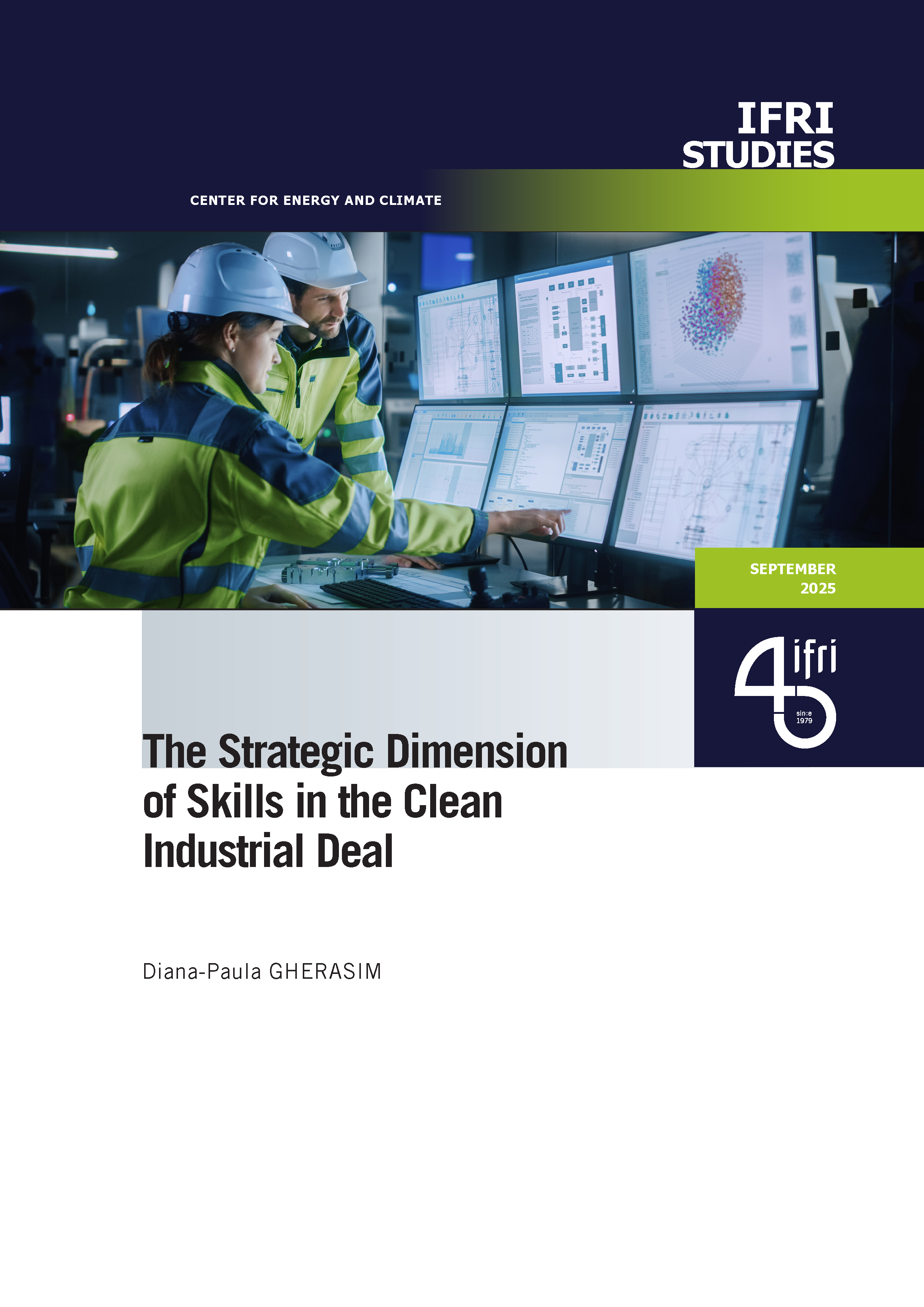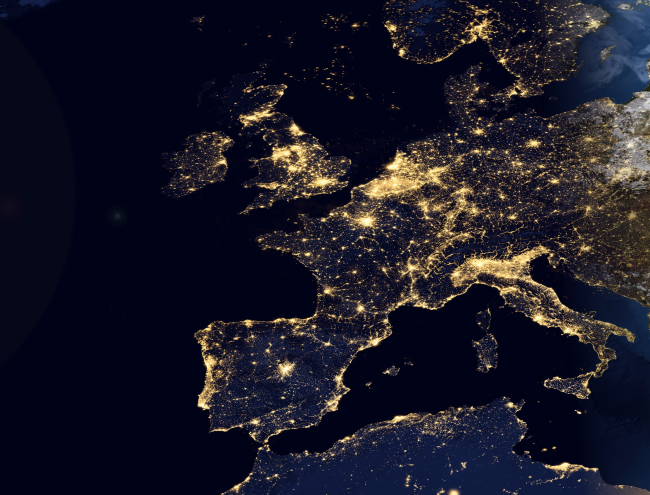The Strategic Dimension of Skills in the Clean Industrial Deal

In the competitiveness and energy transition battles, the European Union (EU) must master a determinant factor: skills.

After the 2022 energy crisis, the competitiveness debate in Europe has been mostly focused on energy costs and the simplification agenda, whereas several surveys and reports (European Investment Bank, Eurobarometer, Organisation for Economic Co-operation and Development) show that for a majority of EU businesses the most acute issue and the biggest obstacle to investment is the insufficient availability of skilled staff. To succeed in delivering the twin low-carbon and digital transition, the EU needs to put workers and skills at the heart of the European project.
The twin transition is nothing less than a skills revolution, with lifelong learning and cross-sectoral collaboration front and center. Up to 4.8 million additional energy transition jobs could be created in Europe in key clean technologies by 2030, but this depends on skills availability, on the thorough implementation of the Green Deal 2030 framework and on EU’s ability to retain domestic clean tech manufacturing capacities. While the energy transition is expected to be a net job creator in Europe, the ongoing crisis in traditional manufacturing sectors has been translating into almost 1 million jobs losses since 2019 and, by 2040, about 8 million people in a number of fossil-fuels related industries (coal, oil refineries and petrochemical industries, internal combustion engine cars) will need to be reskilled and upskilled for new roles, with countries in Central and Eastern Europe being particularly challenged. The EU and Member States must dedicate specific funding lines for skilling and reskilling, which can be estimated to be in the order of 17-25 billion euros for skills in the realm of the energy transition and clean industrial deal, amounts comparable to the firepower of the Just Transition Fund. The most sought skills pertain to the field of Science, Technology, Engineering and Mathematics (STEM) and vocational education and training (VET), but also to transversal occupations such as project management.
Following the Draghi report, the European Commission (EC) has included skills among the pillars of the Clean Industrial Deal, recognizing their strategic value for the success of the energy transition and industrial transformation. The Union of Skills could mark the beginning of a stronger European action to address the three most important challenges for the EU: a weakened performance on basic competences (mathematics, reading and science, but also digital skills), an aging workforce (with more than a third of workers in the electricity sectors being 50-74 years old), and ensuring a just transition across European regions. The overarching objective should be a European skills vision for a truly European social and industrial policy, financed by a strong and forward-looking European budget.
Member States should commit more resources to boosting education systems, supporting life-long learning, incentivizing companies to provide trainings, while also taking a more active and systematic role in monitoring the evolution of skills needs and their availability on the market, the gap in existing education and training offers compared to business needs, the fluctuations of the jobs market, and put a specific focus on the just transition regions with heightened challenges in terms of industry restructuring and attracting new economic opportunities.
At the European level, the Net Zero Industry Academies (NZAs), whose mandate is to boost the EU’s talent pipeline for manufacturing and deploying net-zero technologies in Europe, can be a true game changer—the timely and effective delivery of the energy transition is at stake. This means that they should be reinforced to ensure:
- An impact-driven and inclusive membership to deliver on European-wide skills intelligence coordination (identification of skills needs, jobs evolution, consolidating reporting on training expenses, etc.) and address the most urgent skills gaps and just transition aspects, considering sectoral and regional fast-evolving needs.
- Boosting access to industrial training platforms by identifying “EU Skills Champions”—companies willing to make available their industrial sites to EU skilling initiatives, hence encouraging mutualization of training infrastructure, a more efficient use of EU funds and reducing the time-to-competence across the EU.
- Emphasizing skills transmission channels to create a trickle-down effect of NZAs across the European territory and beyond (for instance via the Clean Industrial and Trade Partnerships with third countries) in terms of skills acquisition, for instance through initiatives like “train the trainers” or those focusing on cross-border infrastructure/energy projects (ex. offshore wind farms). A NZA should be dedicated to electricity grids, which are the bedrock of electrification and are facing unprecedented modernization and deployment needs across Europe in a short time span, and need a collective understanding of skills needs and supply, a beefed-up training ecosystem that can rely on existing best-in-class industrial training and simulation expertise in the EU.
- Create EU-level recognized “clean industrial pathways” by identifying common sets of skills among several industries that can serve as ladders to enable mobility from one sector to another, to better manage labour market fluctuations and promote modular training.
- Raising the profile of vocational education and training around Europe, through European-wide certification schemes, European funding for apprenticeships in critical industrial sectors and just transition regions.
- Attracting and supporting excellent foreign talents and people who have the right skills for European industries, through dedicated visas (e.g. via the EU Talent Pool), mobility schemes, and recognition of qualifications.

Available in:
Themes and regions
ISBN / ISSN
Share
Download the full analysis
This page contains only a summary of our work. If you would like to have access to all the information from our research on the subject, you can download the full version in PDF format.
The Strategic Dimension of Skills in the Clean Industrial Deal
Related centers and programs
Discover our other research centers and programsFind out more
Discover all our analysesPlacing the EU on a Warfare Footing: Energy and Raw Materials Priorities for 2026
The year 2025 has confirmed that one must prepare for much worse in the field of geopolitics and geoeconomics as the intensity and frequency of shocks increase and as the European Union (EU) has no more stable flanks now that crises with the United States (US) become so frequent and reveal a systemic rift. In the world, barriers to trade multiply and dependencies are weaponized.
Brazil One Year Away from the October 2026 General Elections
Brazil’s general elections will be held on October 4, 2026, to elect the president, vice-president, members of the National Congress, governors, deputy governors and state legislative assemblies. For the presidential and gubernatorial elections, a second round will be held on October 25 if no candidate obtains a majority of the votes in the first round.
COP30: An Inflection Point for Climate Action and Governance
The 30th Conference of the Parties (COP30), opening in Belém, Brazil, on November 10th 2025, convenes at a perilous moment.
The Energy Transition Faces Geopolitical Challenges. How Can Ideological Divides Be Overcome?
President Trump’s positions and policies, combined with record coal consumption and booming global electricity demand, geo-economic confrontation, and widespread concerns about energy security, are changing the game when it comes to understanding realistic decarbonization trajectories. The war in Europe is intensifying competition between defense and transition budgets. This is also the case elsewhere in the world.












